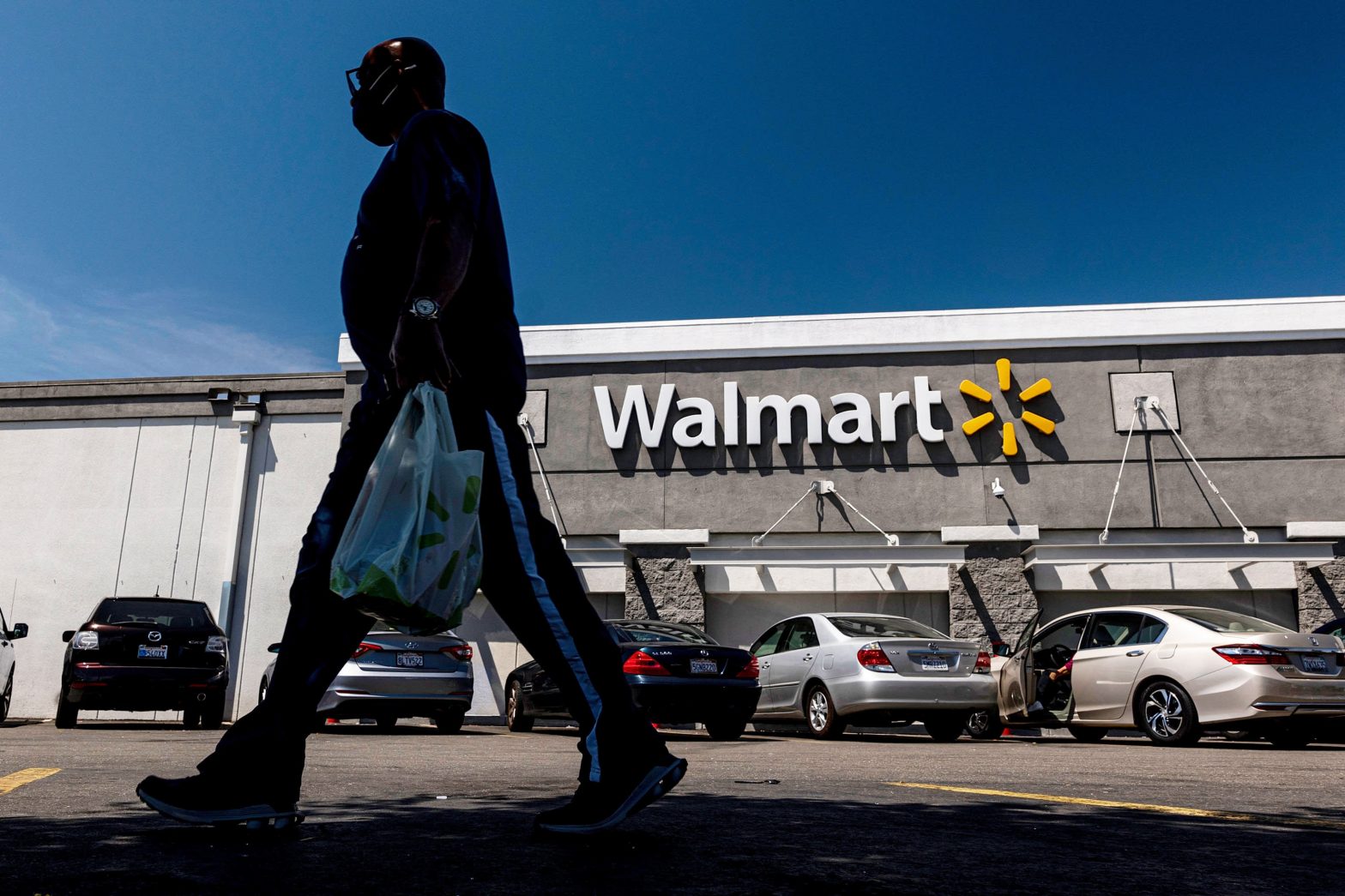Walmart‘s fiscal third-quarter earnings on Tuesday topped analysts’ expectations as price-sensitive grocery shoppers flocked to its stores amid rising costs for household staples.
The retailer’s size is helping it manage through snarled supply chains, as it negotiates with manufacturers, bulks up its inventory and charters its own ships to move goods across the globe. Walmart raised its forecast for the year, saying adjusted earnings per share will be around $6.40 versus its prior expectations of between $6.20 and $6.35.
Shares are down less than 1% in premarket trading.
Here’s what the company reported for the fiscal third quarter ended Oct. 31, according to Refinitiv consensus estimates:
- Earnings per share: $1.45 adjusted vs. $1.40 expected
- Revenue: $140.53 billion vs. $135.60 billion expected
Walmart’s net income fell to $3.11 billion, or $1.11 per share, from $5.14 billion, or $1.80 per share, a year earlier. Excluding items, the company earned $1.45 per share. Analysts were expecting Walmart would earn $1.40 per share, according to Refinitiv.
Total revenue grew by about 4% to $140.53 billion from $134.7 billion a year earlier, exceeding Wall Street’s expectations of $135.60 billion.
Walmart’s same-store sales in the U.S. grew by 9.2%, excluding fuel, higher than the 6.9% expected by a StreetAccount survey.
Walmart’s e-commerce sales in the U.S. grew 8% versus the year-ago quarter — or 87% on a two-year basis.
Inflation is hitting consumers as they go about daily routines, from filling up the gas tank to stocking the refrigerator. Annual inflation rose at its fastest pace in more than three decades in September, according to the Commerce Department.
Walmart, known for its emphasis on “Everyday Low Price,” is one of the retailers that stands to better weather a period of rising prices. As consumers feel sticker shock, they may buy more of their groceries, clothes and other goods at the retailer’s stores and website instead of turning to competitors.
“We’ve always been an inflation fighter for customers,” Walmart Chief Financial Officer Brett Biggs said in an interview with CNBC. “Our scale and the product breadth that we have allows us to do things in a way that is beneficial to customers and beneficial to shareholders.”
Biggs said food inflation was in the low to mid single-digits in the three-month period. He said the company is feeling pressure from the rising cost of fuel, shipping and products, but it has been able to reduce the number of promotions without hurting its sales. Also, it has gotten a boost from new revenue from its growing advertising business.
Biggs said the company has not seen signs so far of trading down — such as buying smaller packs or cheaper brands — but said the retailer may be picking up customers who are looking to save money and time.
Walmart CEO Doug McMillon said in a press release that the company is gaining market share in grocery as U.S. consumers return to stores.
At Walmart’s membership-based warehouse club, Sam’s Club, same-store sales grew 13.9%, excluding fuel, compared with the 8.7% growth expected by StreetAccount.
Biggs said the retailer is seeing shoppers buy holiday items early. He said it’s already sold enough candy canes to stretch from its Bentonville, Arkansas headquarters to the North Pole.
Yet he said there has been “no material pull forward” of holiday shopping in the third quarter. He said the fourth quarter is off to a good start.
“Overall, the consumer appears to us to be in really good shape,” he said. “Wages are up. Jobs are available and spending appears to be strong.”
As of Monday’s close, Walmart shares are up about 2% this year. Shares closed down less than 1% Monday at $146.91, bringing Walmart’s market value to $409.66 billion. Its shares have lagged behind the S&P 500, which is up about 30% this year.
Read Walmart’s press release here.
Tune in to CNBC at 9:15 a.m. ET for an interview with Walmart CEO Doug McMillon.
